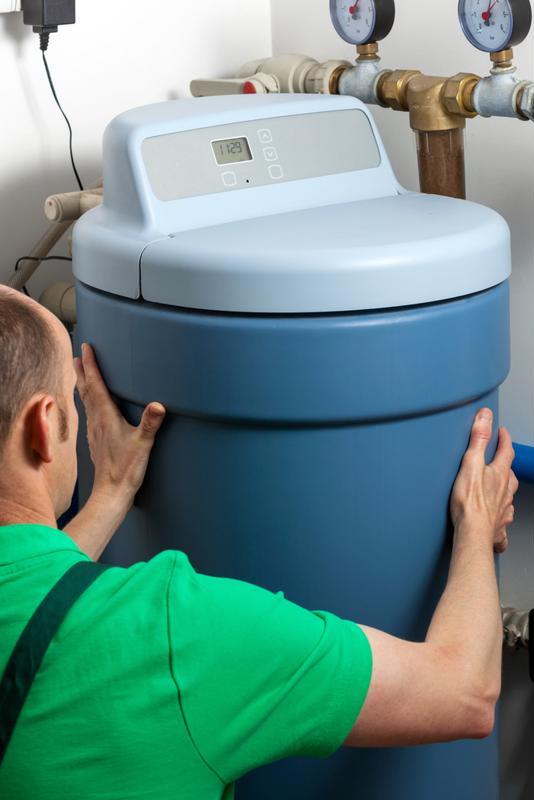Tankless water heaters and water softeners: A good match?
When making the switch from a rusty old tank-style water heater to a new, compact tankless system, you might turn your attention to the quality of the water coming out of your faucets. You're saving energy and money by switching to a tankless model, but is there more you can do to ensure your bath water is sparklingly clear? If you live in an area with hard water, you may want to consider getting a water softener – it'll make your tap water taste better and it could extend the already long life of your new tankless heater.
What is hard water?
According to Oregon State University, hard water is caused by minerals dissolved in the water, typically manganese, magnesium and calcium. The build up of these minerals could cause clothes to become yellow in the wash, skin infections from bacteria trapped in soap scum, and increased heating bills due to a reduced water heater efficiency. The university reported that 85 percent of American households have issues with hard water.

How does a water softener work?
From the outside, a water softener may not look like much. But you may be wondering what's going on inside the tank. Start with the substance that does most of the work: resin. According to Pennsylvania State University, the resin is a sand-like material which is coated in positively charged sodium ions – atoms with more electrons than protons. Hard water flows through the resin, exchanging its sodium ions for the calcium and magnesium ions.
"Minerals are removed through an ion exchange process."
Eventually, the resin will have spent all its sodium ions. That's when the water softener switches into regeneration mode. Newer models do this automatically, though older ones may need to be switched manually. In this mode, a tank of brine washes over the resin, replacing the lost sodium ions and removing the mineral build-up. Salt typically only needs to be added to the system every six to eight weeks, though that time period will depend upon a number of factors, including the size of the unit and the amount of water used.
Softeners and heaters
Electric tankless water heaters won't get as much mineral build-up as old-fashioned types simply because there isn't a tank in which minerals can get stuck. But that doesn't mean hard water won't have any effect. First of all, you have to decide whether or not you're fine with drinking hard water – it's not usually harmful to people, but it can taste odd and cause the problems mentioned above.
The Pacific Northwest National Laboratory, a unit under the Department of Energy, said that hard water will not negatively affect the daily operation of a tankless water heater. However, after many years of continual use, the minerals could build up and reduce the overall life of the machine. This is important to note because electric tankless water heaters have the longest lifespan on the market. Softening your water could keep the device running smoothly for decades to come.
